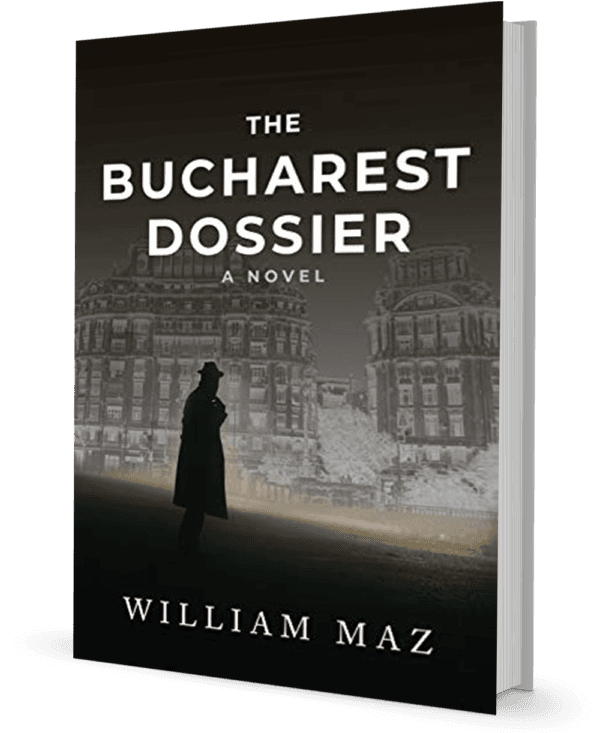Those who enjoy spy novels will tell you that it is difficult to find a good one. Even great spy novelists can’t always deliver a good spy novel. For William Maz, his debut novel—“The Bucharest Dossier”—scheduled for release March 15, is a good spy novel. A very good spy novel.

Cover of "The Bucharest Dossier" by William Maz. Oceanview Publishing






